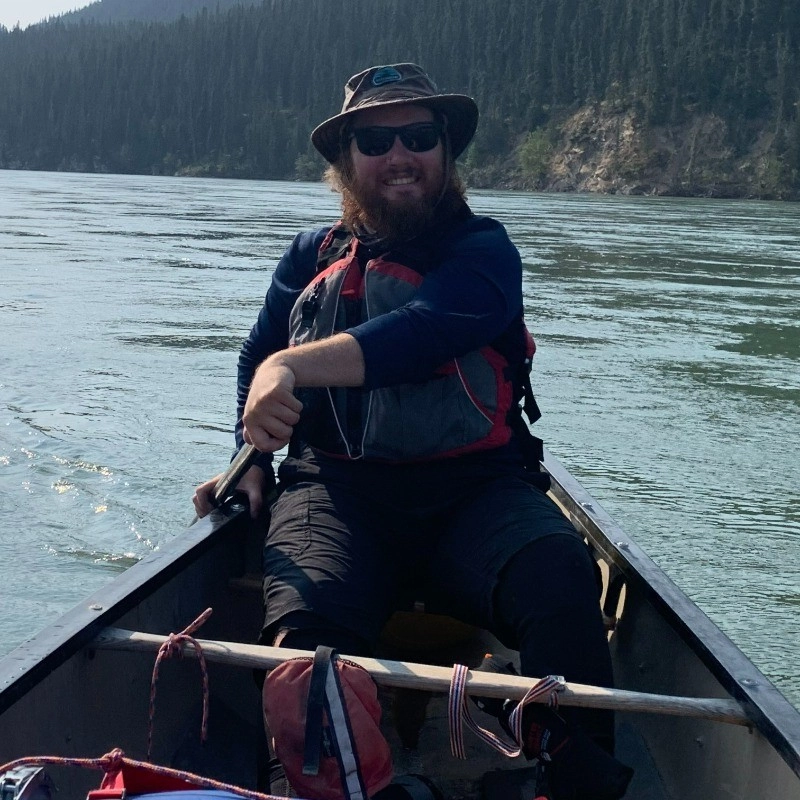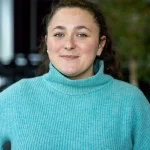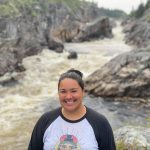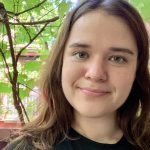Our Team

Louis Gabriel Pouliot
Scientific affairs and geomatics
Louis Gabriel Pouliot holds a bachelor in geography and a Master in water management from the University of Montreal as well as a graduate diploma in comparative anthropology from the University of Quebec in Montreal. Hydrogeomorphologist by trade, he’s working towards developing a fine understanding of fluvial dynamics in all due modesty for their complexity. Sailing across disciplines in order to contribute to the protection of waters, he believes in the potential of the legal personality of watercourses as a tool of ontological dialogue and integral protection of the land.

Elisa Mairet
Head of Communications
Elisa is a jurist and holds a degree in International Relations from the University of Lyon III (2025). Passionate about issues related to socio-ecological transition and international cooperation, she has dedicated her professional career to protecting nature and combating climate change. She works in multicultural environments and has worked on projects related to climate justice, gender equality, and citizen participation in environmental policies.
She holds a Master’s degree in European Law from the University of Paris XII (2020), and worked for four and a half years in the field of immigration law, first in Barcelona and then in Montreal. In 2024, she also obtained a University Diploma in Environmental Law.
Multilingual, Elisa speaks French, Spanish and English. Passionate about issues relating to the protection of human rights and the environment, she is convinced that the recognition of the rights of Nature is an essential step forward in developing effective legal tools to protect our planet’s ecosystems.

Elara Neath Thomin
Head of Development

Uapukun Metokosho
Innu Leader, Rights of Nature
Uapukun Mestokosho is a young leader from the Innu community of Ekuanitshit, located on the North Shore of Quebec, Canada.
She is always looking for ways to live with different peoples and cultures. She loves to travel around the world and has visited France, Sweden, Cuba, Mexico, the Dominican Republic, Brazil and the United States.
Her greatest passion is to travel her ancestral territory in search of her identity in order to discover the way of life of her ancestors and to protect her territory for future generations.
Already a guardian of Nitassinan, the ancestral territory of her Innu community, Uapukun is working with the OIDN to become a guardian of the Magpie River, the first river in Canada to receive legal status.
She is also candidate for Québec Solidaire in the provincial electoral district of Duplessis.

Kelsey Watt
Co-Head of Ontario Chapter
Kelsey Watt is an environmental humanities scholar with over 5 years of experience working across academia and the NGO sector. From Queen’s University, she holds a BA and MA in English and Philosophy and is currently completing her Master’s of Environmental Studies under the supervision of Dr. Mick Smith. Much of Kelsey’s work is concerned with the intersections between ecological storytelling and environmental management policies and practices. She has worked with collaborators across the globe on the topics of invasive species management, feral cat policies and water and land rights. In her role as co-director of the Ontario Chapter at the International Observatory for Nature’s Rights, Kelsey brings her background in a variety of conservation methodologies and certifications as a means of contextualizing the Rights of Nature Movement in Ontario. She currently works on a multitude of projects across the province with teams at Queen’s and the IONR that aim to raise awareness for the rights of rivers and the role of Indigenous guardianship in the legal personhood of water.

Susan Robertson
Water Governance and Strategic Planning and fundraising Lead
With 20 years experience, Susan is a Member of the Canadian Institute of Planners and a Registered Professional Planner in Ontario that specializes in community engagement, watershed planning and meaningful Treaty relations, through RESPECT™, an Indigenous Relations Model. Susan believes in building bridges between Indigenous and non-Indigenous peoples for a better future together and was the first person to be nominated and awarded The Credits Award by the Mississaugas of the Credit First Nation for her contributions to promoting Indigenous cultural heritage. Susan is proud to be the Strategic Coordinator for the #MoccasinIdentifier which aims to teach Treaties to facilitate understanding on Indigenous relationship to land and to restore harmony between Indigenous and non-Indigenous peoples. She is also an active Board member of the Shared Path Consultation Initiative. and a Director At Large on the Board of Ontario Nature, as well as the appointed Public Interest Advisory Committee Chair for the Niagara Escarpment Commission for Ontario Nature.

Darío Ernesto Roca
Web Developer
Darío is an enthusiast of technology, languages, and learning. He currently works with digital marketing agencies in the construction and maintenance of websites for various clients in the United States, Canada, and Latin America. Additionally, he has a degree in life sciences as a microbiologist and enjoys combining both facets of scientist and developer in a process of constant complementarity and learning.
Books and literature are his other great passion. He is the author of a historical fiction book, “Aluna y El Último Tayrona,” which is about the indigenous people of the Sierra Nevada de Santa Marta on the northern coast of Colombia, where he was born and lives. His curiosity about indigenous cultures and his passion for nature have led him to learn more about these communities and to connect with the valuable teachings they have to offer the world about the care and preservation of the environment.

Sophie Fernier
Intern
Sophie Fernier is a third-year B.C.L./J.D. student at McGill University’s Faculty of Law. She joins the International Observatory of Nature Rights (IONR) in Fall 2025 as a student-volunteer through the Pro Bono Students Canada Program, contributing to a new initiative aimed at recognizing the legal personhood of a lake in southeastern Ontario. The project is guided by the knowledge and teachings of an Anishinaabe First Nations whose territory encompasses the lake.
Before entering law, Sophie completed undergraduate studies in Philosophy and Religion at McGill University, where she received multiple awards for academic excellence. Attentive to the interconnections between cultural life, the environment, and global health, Sophie is committed to reimagining legal frameworks that acknowledge the ongoing relationships between human persons and the natural world.

Jordan Stalin Joseph Michael
Intern
Jordan Stalin Joseph Michael is a Master of Laws (LL.M.) student at McGill University and is concurrently pursuing a diploma in Corporate Distress Law at Université Paris 1 Panthéon-Sorbonne. He is joining the International Observatory on the Rights of Nature (OIDN) in Fall 2025 as a student volunteer through the Pro Bono Students Canada program, with the aim of actively contributing to the advancement of the Rights of Nature cause.
His academic background at Université Paris-Dauphine PSL and the École Normale Supérieure, characterized by a strong interdisciplinary focus on law, economics, and social sciences, naturally led him to explore innovative legal approaches. Driven by the belief that the law must evolve to provide robust and effective protection for our natural heritage, Jordan is proud to bring his skills to an organization that is pioneering in recognizing ecosystems as legal subjects. His fluency in English, French, and Tamil is a valuable asset for the Observatory’s work in a truly global context.

Bradley Wiseman
Intern
Bradley Wiseman is a recent law graduate of the Université de Montréal (LL.B., J.D.). Keenly interested in environmental law, Indigenous law, and constitutional law, he has worked as a research assistant at the Centre de recherche en droit public and with several law professors specializing in these areas. His work experiences at the Centre québécois du droit de l’environnement and the Indigenous law firm Dionne Schulze have allowed him to see first-hand how the law interacts with these issues of vital importance to our society.
His strong passion for social and environmental justice has driven him to be actively involved in various social causes, notably as President of the Indigenous Law Committee and Vice-President of the Environmental Law Committee of the Université de Montréal. In 2015, he was certified as a Climate Leader by the Climate Reality organization upon completing a training session given by Al Gore.
